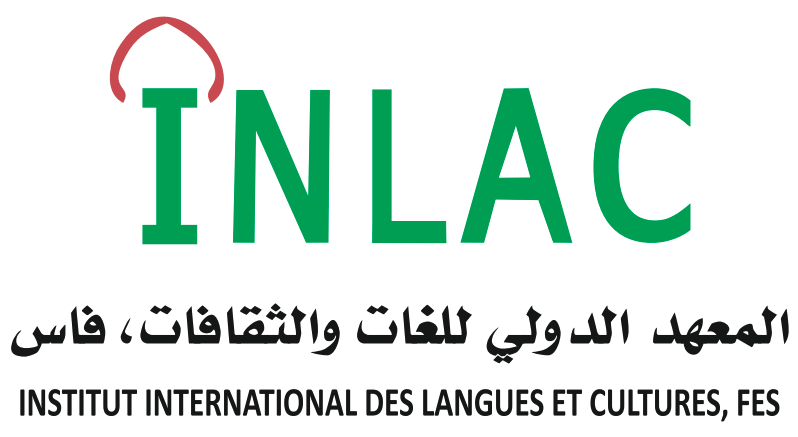
- Home
- Courses
Inlac Institute
COURSES : APART FROM ARABIC, ALL COURSES ARE TAUGHT IN ENGLISH
COURSES : APART FROM ARABIC, ALL COURSES ARE TAUGHT IN ENGLISH
Our courses are carefully selected by faculty and the director of Academic Affairs on the basis of students’ needs, our experience, and learning activities. These courses are purposeful and intensive. Taught by highly qualified professors, the courses help students in their discovery of Arab-Islamic culture and encourage them to achieve high academic standards in just a semester (Fall or Spring). The courses offered are listed below. An INLAC student’s normal academic load is five courses per semester. Pre-registration choices should be noted on the application form. Final enrollment takes place in Fez after consultation with the INLAC administration. Required Courses for One Semester: Arabic Language and Culture I (A 310) Arabic language and Culture II (A 311) Gender Relations in the Arab-Muslim World (A 370) Two selections from the INLAC course offerings *
Our program offers content information that can be developed by motivated learners. The program seeks to gradually detach students from their comfort zones. In today’s globalized economy where business and employment spill across national boundaries, education abroad prepares young people for the world’s future. Compared to two decades ago, the numbers of today’s students who travel abroad for an education has doubled; international study experience has a deep impact on individual growth.
INLAC hosts four study abroad programs each year: two semester programs lasting 15 weeks each in the Fall and the Spring, a six-week-long Summer session, and a three-week-session. All three programs include content courses and an intensive Modern Standard Arabic course (Fus’ha) and/or Colloquial Moroccan Arabic (Darija).

FULL YEAR
DEEP INVOLVEMENT
The full year option is in conformity with the INLAC’s goal to provide considerable knowledge for a real understanding of the cultures of the Middle East and North Africa and a very good mastery of the Arabic language. The full year program helps students to acquire competences worthy of the most sought-for international careers. The INLAC normal academic load consists of five courses.
A four-week internship option is available to students who opt for the Full year program. The INLAC administration decides on the credit value and placement before the end of the fall semester. Required Courses for the Second Semester: Arabic Language and Culture I (A 312) Arabic language and Culture II (A 313) Contemporary Issues in Moroccan Society (A 400) Two selections from the INLAC course offerings
INLAC faculty and administration foster personal interaction and supervision. This is made possible by the small class size, teachers’ office hours and follow-up sessions. Courses are usually three hours per week and are academically demanding. Students can take trips or go on excursions during vacation periods which are usually in November, February, and April. Attendance is compulsory. An optional third selection from the INLAC course list may be added with authorization of the INLAC academic director.
CONTENT COURSES :
FALL COURSES
ISLAM (RELIGION, POLITICS, AND CULTURE) (A 330)
This course looks at the various ways in which Islam is conceived and lived. Three main ways are concentrated on: Islam as faith, Islam as culture, and Islam as politics. Political Islam, Sufism, and Religious reforms will be discussed.
INTRODUCTION TO 20TH CENTURY ARABIC LITERATURE (A 340)
This course serves as an introduction to the literary tradition through an examination of literary works representing different genres of Arabic literature of the 20th century: i.e., novels, short stories and poetry. The selected texts belong to the authors from Egypt, Irak and Morocco… The historical landmarks (Internal sociocultural changes, struggle for independence) and their influence on the writers of the literature are discussed in this course. The aim of the course is to familiarize students with the diversity of Arab society through the analysis and the interpretation of literary texts in translation.
GENDER RELATIONS IN THE ARAB-MUSLIM WORLD (A 370)
Gender role conception and assignment can be understood only within specific cultures. The major foundations of Arab-Islamic cultures are: history, geography, Islam, orality, multilingualism, social organisation, economic status, and political structure. These are explained with case studies.
CONTEMPORARY ISSUES IN MOROCCAN SOCIETY (A 400)
TThe course aims at presenting the key aspects of the history, authority, sociology, religion, education, economy, media and culture of Morocco. The purpose is to give students an overall understanding of these different facets of Moroccan society and to discuss some of the major contemporary issues in Morocco and North Africa. The course encourages students to pursue points of their own interest.
TRANSLATION I (A 430)
This course looks at the various ways in which Islam is conceived and lived. Three main ways are concentrated on: Islam as faith, Islam as culture, and Islam as politics. Political Islam, Sufism, and Religious reforms will be discussed.
QURANIC STUDIES (A 450)
This course introduces students to the Quran and the Hadith (Sayings of the Prophet Muhammad). Related topics such as the various types of the Quran compilation (tadwiin) the history of the revelation (asbaab at-tanziil), the exegesis (tafsiir), etc. are discussed in class. Students are introduced to the various types of Hadith (Prophet Muhammad’s Sayings). The history of selected Hadith-compilation, its contexts of explanation, a survey of the four major schools of Sunni fiqh (Islamic jurisprudence) (fiqh). Students are exposed to Islamic texts, characterized by specific vocabulary and style. Prior knowledge of Arabic is a prerequisite.
SPRING COURSES
INTRODUCTION TO MODERN ARABIC LITERATURE (A 350)
This course serves as an introduction to modern Arabic literature (poetry, short story, novel). The selected texts belong to modern authors from the East and West of the Arab world ,dealing with political, social and cultural concepts.The aim of the course is to familiarize students with the modern Arabic literary works through reading and analysis of the texts in translation.
ARAB-ISLAMIC ARCHITECTURE (A 360)
Architecture is related to Muslim people and their various ways of life. The evolution of architecture is linked to the evolution of society, itself a product of the evolution of the men and women that constitute this society. The architecture of Islamic cities is rich with historical, social, political, and psychological facts.
COMPARATIVE FEMINISMS (A 380)
This course is an introduction to comparative feminism with a special focus on the MENA and American/European feminisms. The course is organized along three main ideas: (i) the major theoretical frameworks that shaped feminisms and their developments, (ii) the specific case studies and their socio-political and cultural contexts, and (iii) insights into new developments at the global and local levels.
CONTEMPORARY POLITICAL ISSUES IN THE ISLAMIC WORLD(A 390)
This course examines the major contemporary issues in the Arab-Islamic world such as Islamization, democratization, Judiciary reforms, the increasing importance of public opinion, and international relations.
SOCIAL MOVEMENTS IN NORTH AFRICA (A 410)
This course introduces socio-economic and political aspects of different social movements as well as concepts, behaviours and techniques of control. The course focuses on social movements in North Africa, namely the rise of the movement for democracy and human rights, the role of feminine NGOs in development and social change, the Berber movement for the promotion of Berber language and culture, and the growing importance of the Islamist movement in the region. These movements are triggered off by internal as well as external factors like globalization. The social, political, cultural and economic implications of these movements are discussed at length in class.
MIGRATION IN NORTH AFRICA (A 420)
This course discusses the issues of migration in North Africa with a focus on Moroccan migration to Europe; it also explores Sub-saharan migration, while offering a general profile of migrants in North Africa; further it discusses the evolution of international migration to the European Union countries. The course also discusses the migration intentions of Moroccans, the causes, impetus, and the consequences of migration on Moroccan society..
TRANSLATION II (A 440)
This three hour semester course trains students, who have finished with success the advanced level of Arabic, to translate religious and philosophical texts from English into Arabic, and vice versa. Focus is put on style, writing, and advanced diction.